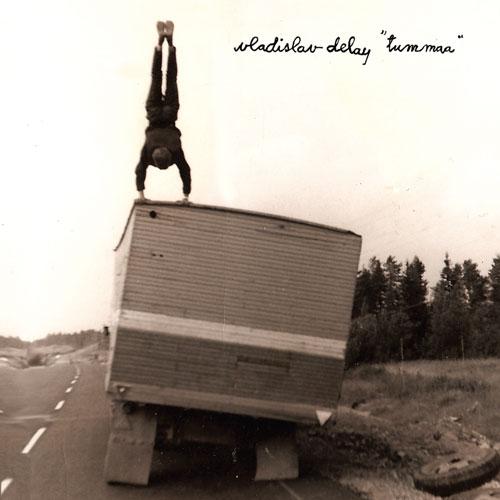
Vladislav Delay
Tummaa
(Leaf; 2009)
By Joel Elliott | 28 August 2009
I can’t claim to know much about what making electronic music consists of in a nuts-and-bolts kind of way but I’ve always been under the impression that over-saturation is the easiest route. Removing elements, pairing them down to haunting remnants of their source, requires a perverse sense of diligence. Perverse and in this case also somewhat baffling, since while the sounds on Vladislav Delay’s (one of Sasu Ripatti’s many alter-egos) new album are as chiseled to their micro-elements as on any of his albums, here they’re often put to the service of haphazard, semi-improvised compositions.
A jazz drummer by trade, it’s easy to see how Ripatti would opt for a more organic, live sound. Ironically, Tummaa contains perhaps some of the most arrhythmic tracks he’s ever done. There is more identifiable percussion, yes, but he also rejects both the fluid movement of the echo-chamber albums he’s previously dropped under the Delay moniker (like the stunning Mutila [2000]) as well as the live energy of his recent contribution to Moritz Von Oswald Trio’s Vertical Ascent. That sense of space is still there—an illusion that always makes my head spin with his records when you consider how on the surface there’s actually so much going on. But the instrumentation isn’t always to the benefit of the tracks: opener “Melankolia” features some rather maudlin piano melodies from Chris Armstrong, whose credits (orchestrations for U2 and Massive Attack, composer for Romeo & Juliet and Cruel Intentions) make him seem like a strange pick as a collaborator. Apparently, his contributions—as well as those of reedsman Lucio Capece—were recorded ahead of time rather than alongside Ripatti’s own percussion and electronics. It tends to show. Ripatti himself mostly punctuates Armstrong’s playing with hiccuped beats: the result has a similar aimlessness to it as the collaborations of Fennesz and Ryuichi Sakamoto.
Where Tummaa succeeds is where it veers completely towards abstraction and immersion. I can’t help but wonder how much better “Mustelmia” would be without the tinny metallic percussion behind it. When Ripatti does ditch the crude beats, he manages to veer towards a haunting, dispersive sound-world, at times even recalling Brian Eno’s Ambient 4: On Land (1982), a holy grail of the genre for me. Armstrong manages a simple and elegant Rhodes-lead on “Musta Planeetta” that doesn’t overwhelm the rest of the sounds—and for a few spine-tingling seconds, lets loose in one of the rare times the album aspires to Ripatti’s jazz background. The harsh industrial beats which follow with “Toive” would be effective in another context but they’re hard to swallow when he’s just finished illustrating how much effortless beauty he can summon on the flimsiest of hooks. I mean, by his own account he’s supposed to be embracing a more “organic” feel on this album. Having “real” physical instruments in your studio doesn’t make your music sound more natural and certainly no more like jazz.
Thankfully there are a couple of huge beacons of light (or if you will, monstrous shadowy apparitions) at the end of the album: the title track is up there with Ripatti’s best work, indescribable in the way it plays with fragments of sound that seem to enter from all sides at once and yet still leave bursts of silence (and also still allow him to get his banging-on-shit out of his system). Likewise, closer “Tunnelvisio” does the hall-of-mirrors trick with the Rhodes, where you’re not sure which is the original sample and which is the echo, rendering the whole track into negative impressions of itself that register on a deeply-subconscious level. Rather than sticking to one groove, these longer tracks float through various movements without announcing their changes to the hilltops like a lot of cinema-friendly music. It’s telling that these are the most abstract tracks here and also the closest to previous Vladislav Delay albums, but they seem like a better place to start in terms of suggesting both a continuity with his previous releases and also a way forward. They also make Tummaa a worthy if sometimes frustrating release in Ripatti’s lengthy catalogue.





